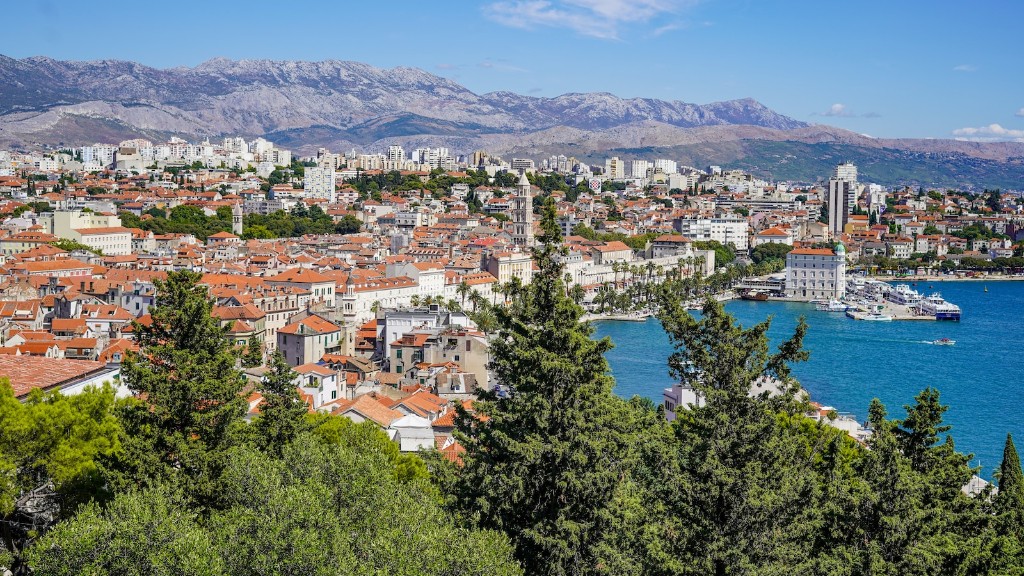How Does Croatian Language Sound
Croatian is a South Slavic language spoken primarily in Croatia. It is the official language of the Republic of Croatia and one of the 24 official languages of the European Union. Comprised of three distinct dialects, Croatian has often been noted for its neutral, melodic sound, as well as its unique syntax and elaborate dialogue.
The History of Croatian Language
Croatian is one of the oldest living languages on the continent, with records traceable as far back as the 9th century. It was historically spoken in most of central and eastern Europe, reaching as far as Romania and Ukraine. Serbian and Croatian were once considered two dialects of the same language, and the earliest known written document in Croatian belongs to Glagolitic alphabet in the 11th century, with Old Church Slavonic and ultimately Old Croatian as its basis.
Before the Croatian War of Independence, both Serbian and Croatian had been officially considered one language, with small variants between each. Following the war, which lasted from 1991 to 1995, Croatian became the official language of Croatia.
The Written Language
Croatian is written in a modified Latin alphabet Sanskrit and the Roman alphabet have both been used for creating literary versions of Croatian language, with the Cyrillic script being used in Serbia and some of the other formerly Yugoslavian countries. The Latin version is based on the modern Croatian alphabet, having added letters Č, Ć, Dž, Đ, Lj and Nj.
Unique Syntax and Dialect
Croatian has unique syntax and distinctive regional dialects. It has several phonological and rhythmic features that make its sound interesting and attractive to speakers. The sound is characterized by its softness and supple pitch, which makes it stand out from other languages. Additionally, the Croatian dialect is often said to be one of the most musical languages in the Slavic lexicon. Some of its phrases are almost poetic sounding, with their rolling syllables and lingering cadences.
Overall, the sound of Croatian language has been described as being both meditative and meditative. Dialects vary considerably from region to region however, so Croatians that travel abroad may find it difficult to understand another speaker from a different part of the country. The Istrian dialect is considered to be the most distinct language of the entire region, and some compare it to medieval Italian.
Notable Grammatical Elements
The Croatian language has 7 verb cases and 6 noun cases as well as several conjugations to serve all the different subjects, objects and participles of each sentence: nouns, adjectives and verbs. It also has a few unique rules, including the double accusative, which is one of the few remnants of the ancient Proto-Indo-European language.
Unlike other Slavic languages, Croatian uses the imperative mood to express commands. This means that when giving a command – such as “go!” – the subject of the command might not be part of the phrase. This can be confusing for novice learners, since the imperative mood is usually only used in questions and commands in English.
The Importance of Croatian Language
Knowing the Croatian language is important for communicating and for conducting business in Croatia. Additionally, it is widely considered to be an interesting and beneficial language to learn, as it is an essential part of the culture and history of Croatia. Student and travelers alike can use it to build bridges between nations and to make relationships easier and more meaningful.
Ultimately, the Croatian language is an important part of the cultural identity of Croatia, and its soft and melodious sound can help represent this. There is much to learn from its unique forms and verbs, and its syntax and phrases can be quite beautiful.
Croatian Loanwords in Other Languages
Croatian has left an impressive mark in other European languages, with various loanwords and expressions originating from Croatian words. Croatian has contributed several words to English, such as “coffee” (“kava” in Croatian), “bravo” (“bravo”) and “valley” (“dolina”). Additionally, Croatian has had an influence on French, Spanish, Italian and other languages worldwide.
How to Learn Croatian Language?
To learn Croatian language, it’s important to find a reliable and dedicated way to study it. Taking an online course or enrolling in a language school in Croatia can be a great jump start. Additionally, if you want to go more in depth, attending an intensive summer language school in Croatia is an excellent option. Immersing yourself in the language, and socializing with Croatian natives, will not only enable you to learn the language faster, but also learn more about the culture.
Conclusion
Croatian is a language full of interesting syntax and unique dialects. It has an attractive sound and its written form is easily recognizable among other Slavic languages. Understanding its history and learning the structure of the language can help you gain a more profound understanding of the culture of Croatia and its people.



